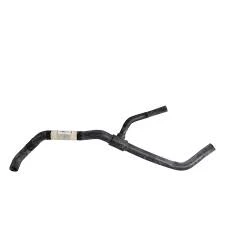Understanding the Importance of Alcohol Resistant Fuel Lines in Modern Vehicles
Dec . 05, 2024 15:13 Back to list
Understanding the Importance of Alcohol Resistant Fuel Lines in Modern Vehicles
Understanding Alcohol Fuel Lines A Key Component for Alternative Fuel Vehicles
As the world continues to shift towards more sustainable energy sources, the need for innovative solutions in the transportation sector becomes increasingly critical. One of the prominent developments in this space is the use of alcohol-based fuels, such as ethanol and methanol. However, utilizing these fuels comes with unique challenges, especially concerning the fuel delivery systems in vehicles. One crucial component that requires special attention is the alcohol fuel line.
What Are Alcohol Fuel Lines?
Alcohol fuel lines are specialized tubes or pipes that transport alcohol-based fuels from the fuel tank to the engine of a vehicle. Unlike conventional gasoline, which is derived from crude oil, alcohol fuels are typically produced from renewable resources such as corn, sugarcane, and other biomass materials. This renewable aspect gives alcohol fuels an edge against fossil fuels in terms of reducing greenhouse gas emissions.
However, alcohol fuels possess different chemical properties than gasoline, which necessitates the use of fuel lines made from compatible materials. Ethanol, for example, is known to absorb moisture, which can lead to corrosion and degradation of standard rubber and plastic materials typically used in conventional fuel lines. Hence, alcohol fuel lines are usually made from materials such as fluoropolymer, nylon, or other specialized compounds that can withstand the corrosive nature and higher permeability associated with alcohol fuels.
Why Are Alcohol Fuel Lines Important?
1. Compatibility with Alcohol Fuels As previously mentioned, the primary role of alcohol fuel lines is to ensure that the fuel is delivered effectively to the engine without degradation. Standard fuel lines may deteriorate over time when exposed to alcohol fuels, leading to leaks, fuel loss, and potential safety hazards. Using dedicated alcohol fuel lines mitigates these risks.
2. Performance Optimization For vehicles designed to run on alcohol-based fuels, the efficiency and performance of the engine can depend significantly on the integrity of the fuel delivery system. High-quality alcohol fuel lines can help maintain consistent pressure and flow rate, which are crucial for optimal engine performance.
alcohol fuel line

3. Reducing Environmental Impact By enabling the effective use of alcohol-based fuels, alcohol fuel lines contribute to a reduction in the reliance on fossil fuels. This, in turn, plays a part in minimizing carbon footprints and achieving greater sustainability in transportation.
4. Safety Considerations Safety is paramount in the automotive industry. The materials used in alcohol fuel lines must meet specific safety standards to prevent leaks and possible fire hazards. Ensuring that the fuel system is up to code with high-quality materials is essential for the safe operation of vehicles running on alcohol fuels.
Installation and Maintenance
Installing alcohol fuel lines requires careful attention to detail to ensure that all connections and fittings are secure. Proper installation prevents fuel leaks, which can be both dangerous and environmentally detrimental. Additionally, regular maintenance is essential. Vehicle owners should periodically inspect their fuel lines for any signs of wear or degradation, especially if their vehicles are frequently exposed to high temperatures or corrosive substances.
Future of Alcohol Fuel Lines in the Automotive Industry
As automotive manufacturers increasingly pivot towards producing vehicles capable of utilizing alternative fuels, including alcohol, the demand for robust and reliable alcohol fuel lines will grow. Innovations in materials science may lead to even more resilient fuel lines that can handle a wider range of fuels, contributing to the broader adoption of sustainable energy in transportation.
In conclusion, as we continue to explore and develop additional ways to use renewable resources, alcohol fuel lines will play a pivotal role in ensuring that vehicles operate efficiently and safely. They are not just components of the fuel system; they represent a step toward a more sustainable future where renewable fuels can replace conventional fossil fuels, helping to mitigate climate change and promote environmental stewardship.
